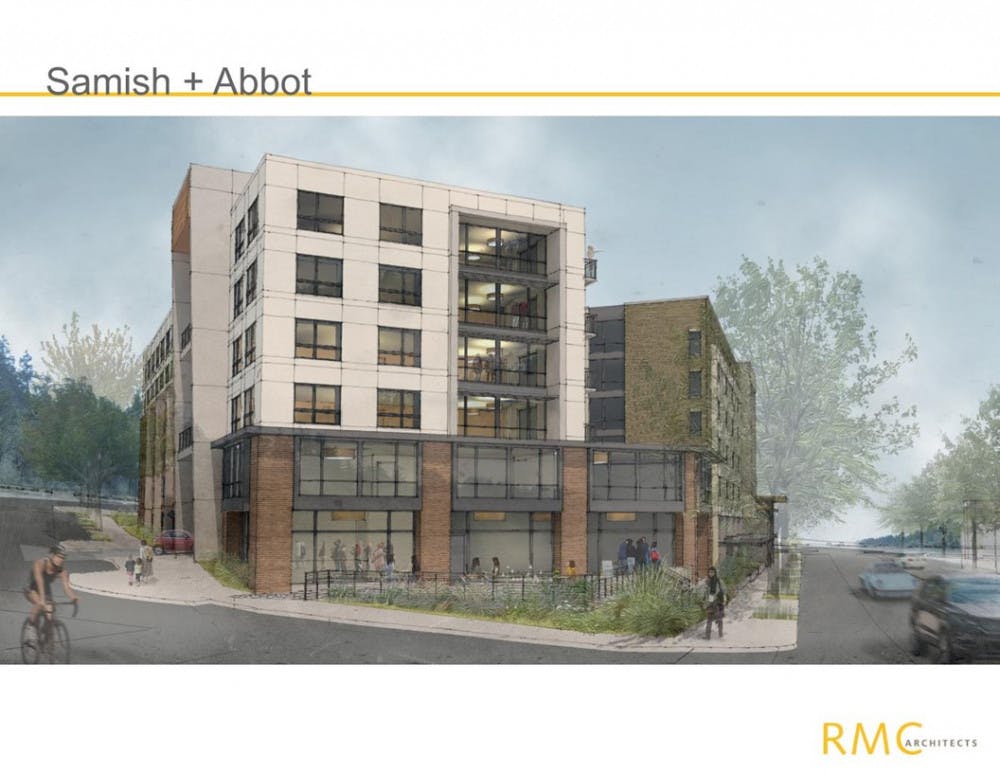Taxing short-term rentals may help with shelter shortages

Bellingham is not immune to the nationwide shortage of affordable housing.
Brien Thane, the executive director and CEO of the Housing Authority for the City of Bellingham, believes short-term rentals, such as Airbnb, are to blame.
“I know that it is constraining the supply of properties that otherwise would be rentals or starter homes,” Thane said. “It’s driving up both rents and buyer costs.”
Sen. Liz Lovelett said she has noticed a rise in short-term rentals in many of the communities within her district, so she proposed a solution: Senate Bill 5012.
Lovelett is a Washington state senator for the 40th district. The 40th district covers the cities of Bellingham, Mt. Vernon, Anacortes and the San Juan Islands.
The bill would add a tax at checkout for customers renting short-term units or homes, and that money would go into helping cities fund affordable housing, Lovelett said.
This could help affordable housing organizations catch up to the shrinking rental market.
Lovelett said Airbnb and other short-term rentals are directly connected to the rental shortage.
“They have really taken a lot of units out of the rental market and put them into short term usage,” Lovelett said. “Which means that folks that are your lower-wage earners have less opportunities to find places to live.”
Samya Lutz, the housing and services program manager for the City of Bellingham, said she is aware rent increases can sometimes lead to homelessness.
Based on a 2019 analysis, there are about 2,500 households that need units and about 550 households experiencing homelessness, Lutz said. A household can either include a single person or a family with children.
She said that estimate was from before the COVID-19 pandemic, and the effects are likely worse than originally estimated due to the expiring eviction moratorium and inadequate resources.
“We’re anticipating things will probably get worse in the next few months,” Lutz said. “It’s not a rosy picture.”
Bellingham has various organizations that work to provide the community with different types of affordable housing.
The Bellingham Housing Authority alone has about 600 public housing units across Whatcom County, Thane said. He said this is still not enough.
“It’s estimated that over a quarter of working families in Bellingham can’t afford basic needs, can’t afford housing and are suffering food insecurity,” Thane said. “I find that very shocking.”
Even if those Bellingham residents are employed, the ability to pay rent every month can be uncertain.
“There are a lot of people who are holding down a steady job, but they’re one medical emergency or blown transmission away from not being able to make rent,” Thane said.
Lovelett also said she understands many people rely on renting out other properties as a way to make a living.
“I can appreciate that for a lot of people this has become a way to earn their income,” Lovelett said. “So, I am very sensitive to making sure that it’s not penalizing folks that are trying to make a living out of it.”
With this in mind, Lovelett said she designed the bill to have many exceptions.
The city or county council can vote to adopt the bill within their community. These legislative bodies can also set the rate between 1% and 10% of the total value of the state based on the circumstances in their area.
“I will say because it is opt-in, it is also opt-out,” Lovelett said. “So if there are unintended consequences that come from this at the local level, like it somehow disincentivizes people from continuing to go to a particular place because of this tax, then they can repeal it.”
The tax could bring in $31 million a year if every jurisdiction in Washington state applied the bill, said Lovelett. She said the money could go toward capital costs of affordable housing or operating costs for housing organizations.
“We really tried to put it out there that if this works for your community, great. If this doesn’t work for your community, you don’t have to adopt it,” said Lovelett.
Robyn and Bruce Burke have been Airbnb owners for two years and are worried about how the bill could affect their business.
“We’re moving into retirement and want to work less, so it certainly will take care of some bills,” Bruce Burke said. “We started it almost on a whim, but I think now it’s going to transition to something we count on.”
The Burkes said a tax would discourage customers from choosing to stay at an Airbnb.
“We charge $75 a night. Well, that sounds like a really great deal, but by the time everything gets added up, it’s a whole lot more than that,” Robyn Burke said. “Somebody may have to think twice about whether or not they can afford to go away for the weekend.”
The Burkes said they are also concerned about the intended purposes of the bill. Bruce Burke said that on the surface, the bill seems rational, but it is a cover story. They worry that it could be used by hotels to diminish competition. S.B. 5012 has not impacted short-term rentals or affordable housing yet. The bill is currently in the policy committee and has to go through many steps before it reaches the governor’s desk.





